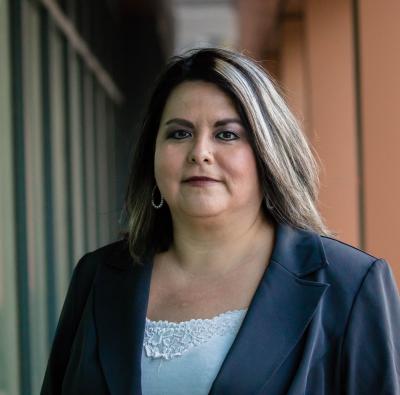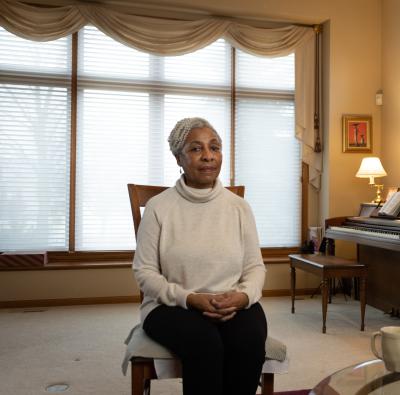In a major win for transparency and accountability in Texas, the Texas Supreme Court has declined to hear an appeal of a case challenging the legitimacy of the Texas Ethics Commission.
For more than 30 years, the Texas Ethics Commission has deterred public corruption in the Lone Star State and provided transparency in elections by enforcing the...
CLC has filed multiple complaints with the U.S. Senate Select Committee on Ethics (Ethics Committee) showing that more than 47 Senate candidates competing in the 2024 cycle failed to file their legally required personal financial disclosure reports in 2023.
At least nine of those candidates are still running and claim to have loaned thousands of...
The Federal District Court for the District of Arizona has dismissed a lawsuit brought by Americans for Prosperity (AFP) and the Americans for Prosperity Foundation (AFPF) challenging the constitutionality of Proposition 211, also known as the Voters’ Right to Know Act.
The ballot measure was approved by 72% of Arizona voters in November 2022 after...
As the 2024 election rapidly approaches, the risk that artificial intelligence (AI) could be used to deceive voters or manipulate our democratic process continues to grow. Thankfully, there are promising signs in Congress for a bipartisan path to safeguard elections from the emerging threat this technology presents.
AI is a game-changer due to its...
Every election cycle, candidates and political parties use a legally dubious tactic known as “redboxing” to provide instructions and strategic guidance to supportive super PACs, 501(c)(4) dark money groups, and other supposedly “independent” groups that collectively raise and spend billions of dollars to influence elections.
Federal campaign finance...
Many voters continue to be concerned about the possibility of encountering voter intimidation at the polls, in their mailboxes and even at their own doorsteps. In recent years, bad actors have intimidated voters by distributing false information or asking voters invasive and illegal questions about their registration status.
But you should not be...
A newly released investigation by the Department of State Office of Inspector General (OIG) has revealed misconduct and mismanagement by a U.S. ambassador — a wealthy businessman with no prior foreign policy experience — who was appointed to the role after making hundreds of thousands of dollars in political contributions.
While unacceptable...
Free and fair elections rely on every voter having the ability to access the ballot box.
A federal judge in Arizona just reaffirmed that principle, striking down provisions of two Arizona laws, H.B. 2492 and H.B. 2243, passed in 2022 that severely restricted the ability of Arizonans — particularly Latino and Native Arizonans — from exercising...
Campaign Legal Center (CLC) filed a complaint with the Senate Ethics Committee alleging that 41 Senate candidates have not filed required financial disclosure reports.
Senate hopefuls are required to file financial disclosure reports with the Senate Ethics Committee once they have declared their candidacy and have raised or spent $5,000 in support...
Wealthy special interests use campaign money to influence voters and exert control over political decision-making at all levels of government. In 2023, voters in Maine scored a big win for local self-governance when they passed Question 2 with the largest margin of approval for any initiative in the 115-year history of state ballot referenda.
What...
For more than a decade, Wisconsinites suffered under unfair and unconstitutional state legislative maps that essentially guaranteed one-party control of the Legislature — one of the most egregious gerrymanders in the country.
Now, the gerrymander is no more.
On February 19, 2024, Wisconsin Gov. Tony Evers signed fair maps — which he proposed and...
Next month, the Judicial Conference will meet and should report out regarding the current review they are conducting into the allegations that Justice Clarence Thomas violated federal financial disclosure laws.
Today, in anticipation of that meeting, Campaign Legal Center submitted additional information for this body to consider in its role as the...
After the January 6 attack on our country revealed gaps and ambiguities in the process of certifying presidential elections, Congress passed the Electoral Count Reform Act of 2022 — a strong bipartisan bill and major victory for voters’ ability to make their voices heard in future presidential elections.
In the year since, advocates and lawmakers at...
Outside spending groups like super PACs can wield enormous influence over our elections, and it’s important — and legally required — that these groups’ election spending be properly disclosed so that voters can evaluate electoral ads equipped with complete and accurate information about the sources behind money spent to influence their vote and our...
When a person decides to run for one of the country’s highest elective offices, voters have a right to know the candidate’s financial interests. Information about a candidate’s financial background is vital for the public’s trust because it allows voters to assess what influences may come to bear on a candidate or whether there are possible...
Transparency is one of the bedrock principles of our election system. For voters to meaningfully participate in the democratic process, it’s vital that they have access to complete and accurate information about who is spending to influence their vote.
Transparency is especially important in our current political process, in which wealthy donors and...
The Senate Ethics Committee (Ethics Committee) just released its annual report for 2023. For 13 months, the public has had no idea what the Ethics Committee has been doing. Despite the long wait, and a prominent ethics scandal surrounding a committee chairman, the annual report reveals that we haven’t missed much. Once again, the Ethics Committee...
In the 14 years since the Supreme Court’s decision in Citizens United v. FEC, spending by super PACs and other outside (supposedly independent) groups has skyrocketed, with most experts expecting the 2024 election to break spending records.
Yet as this spending has increased, the Federal Election Commission (FEC), the agency responsible for...
Campaign Legal Center (CLC) joins the legal community, friends, family and colleagues in mourning the loss of Charles Fried — an esteemed scholar and longtime Harvard Law School professor, former Solicitor General and model of nonpartisan commitment to effective democracy.
Professor Fried served on CLC’s Board of Directors from 2016 to 2021...
After receiving CLC’s letter asking that the Judicial Conference’s September 2023 Report of the Proceedings be made public, the Judicial Conference provided the smallest glimmer of hope that it is taking enforcement of Justice Thomas’s Ethics in Government Act (EIGA) violations seriously — it provided an update in the newly released Report of the...
Voters have a right to know who their elected officials are and what or who may influence them. That is why CLC filed a complaint against Representative Andy Ogles of Tennessee with the Office of Congressional Ethics (OCE).
Rep. Ogles’ financial disclosure reports appear to include over $1 million in financial discrepancies, including his failure to...


